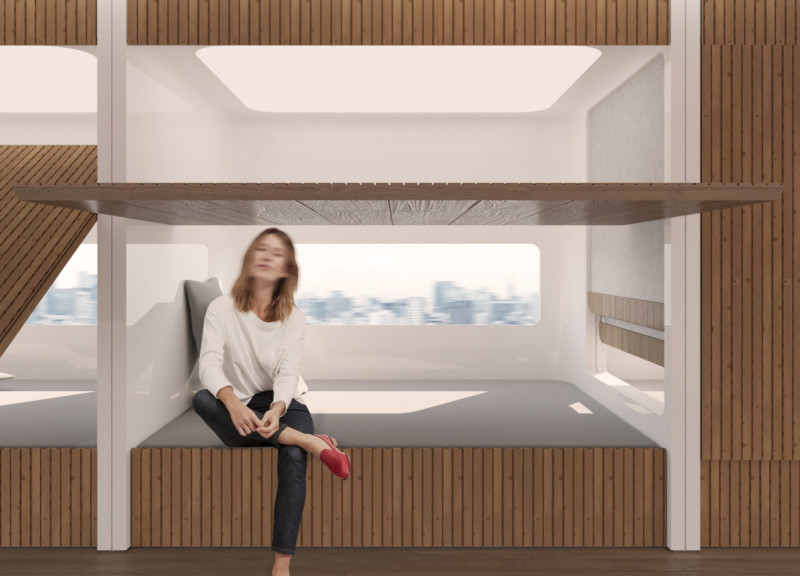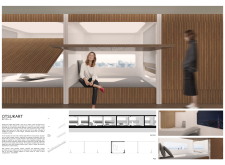5 key facts about this project
Otsukart is an architectural design located in Tokyo, aimed at improving the daily commute for city residents. The project features modular cabins placed within train wagons, designed to create spaces for relaxation amid the busy urban environment. The concept seeks to offer individuals a chance to unwind during their travels, transforming the ordinary experience of commuting into a more enjoyable one.
Design Concept
The main idea behind Otsukart is to provide a modular cabin that serves as a peaceful escape for commuters. These cabins are integrated into train wagons, offering a quiet space in the midst of the city's hustle. A simple check-in system allows users to scan a barcode to enter the cabin, making the experience personalized based on their travel time.
Cultural Inspiration
The design takes inspiration from traditional Japanese Tatami mats, providing a sense of connection to local culture. These private enclosures in the cabins help to block out the outside noise, making it easier for users to relax while traveling. This cultural reference contributes to a design that feels relevant and familiar to the city's inhabitants.
Acoustic Considerations
One of the key features of Otsukart is its focus on sound management within the cabins. Insulation is used throughout the cabin structure to reduce the noise generated by the train. By minimizing these external sounds, the design creates a calm environment that allows users to escape the distractions of city life during their commute.
Material Choices
Inside the cabins, memory foam is used to create surfaces that adapt to each user’s body. This choice enhances comfort and provides support during various journey lengths. The inclusion of this material reflects a thoughtful approach to designing a space that prioritizes user experience in the context of urban transportation.
The memory foam surfaces invite users to relax and recharge as they travel through the city, emphasizing the importance of comfort and well-being for commuters.



















































